Would Detroit: Become Human's creator buy an android? "Who wouldn’t?"
"You can see all the problems, but who would say no to technology?"
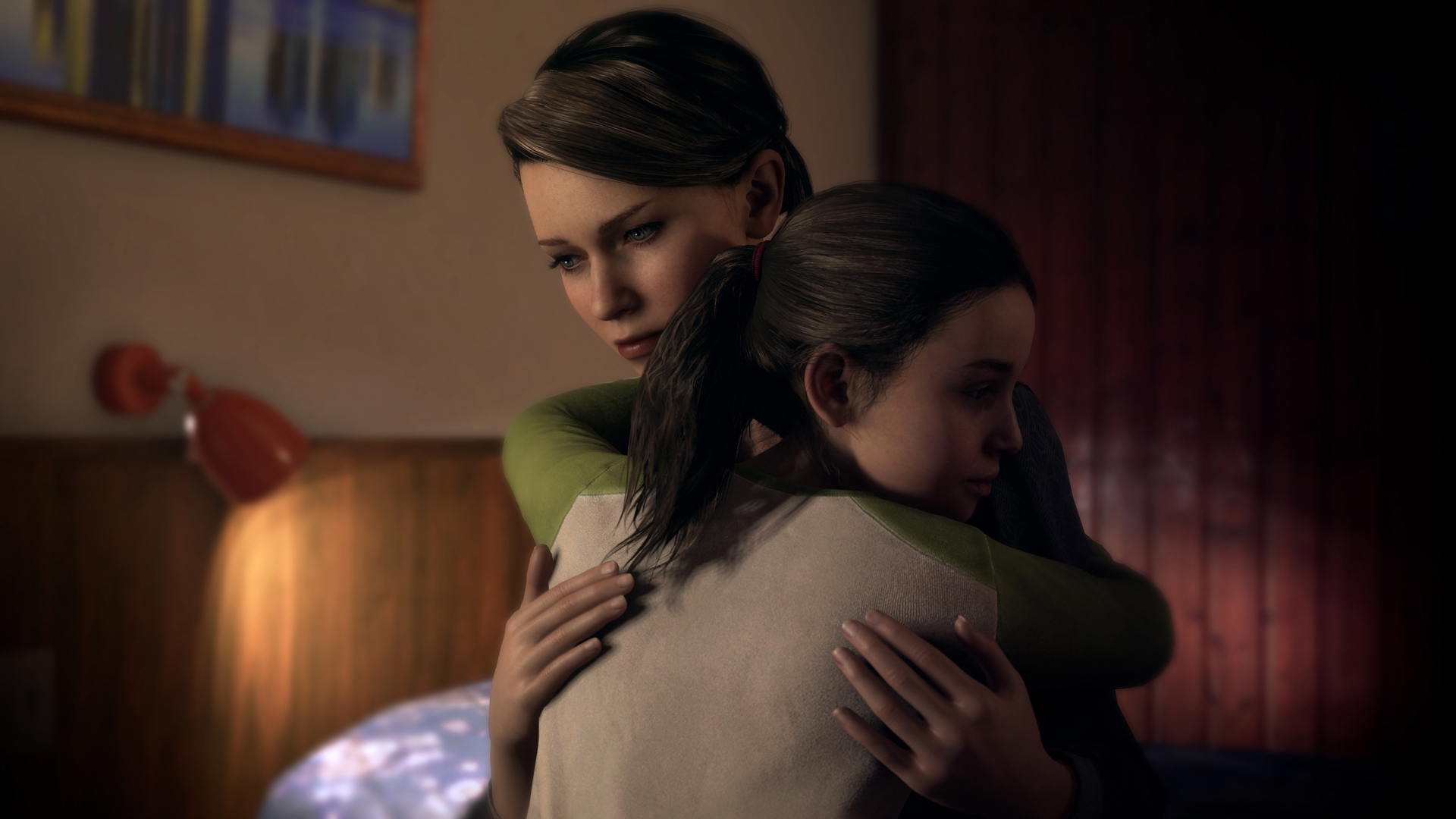
At first glance it’s easy to see Quantic Dream’s Detroit: Become Human as covering the same ground as Westworld. Look closer though, and swap theme parks and cowboys for real world, eerily recognisable settings. The android nanny, the computer-powered cop, the carer. Look even deeper into the world and it also deals with subjects of data and privacy that will be familiar to anyone who has seen Mark Zuckerberg and his booster seat talking to senators and Facebook and Cambridge Analytica.
We went hands on with the game and you can read about that here, but we also sat down with the game’s director and writer David Cage to peel back the Detroit’s rubbery, uncanny valley skin and look at the moving parts just below the surface.
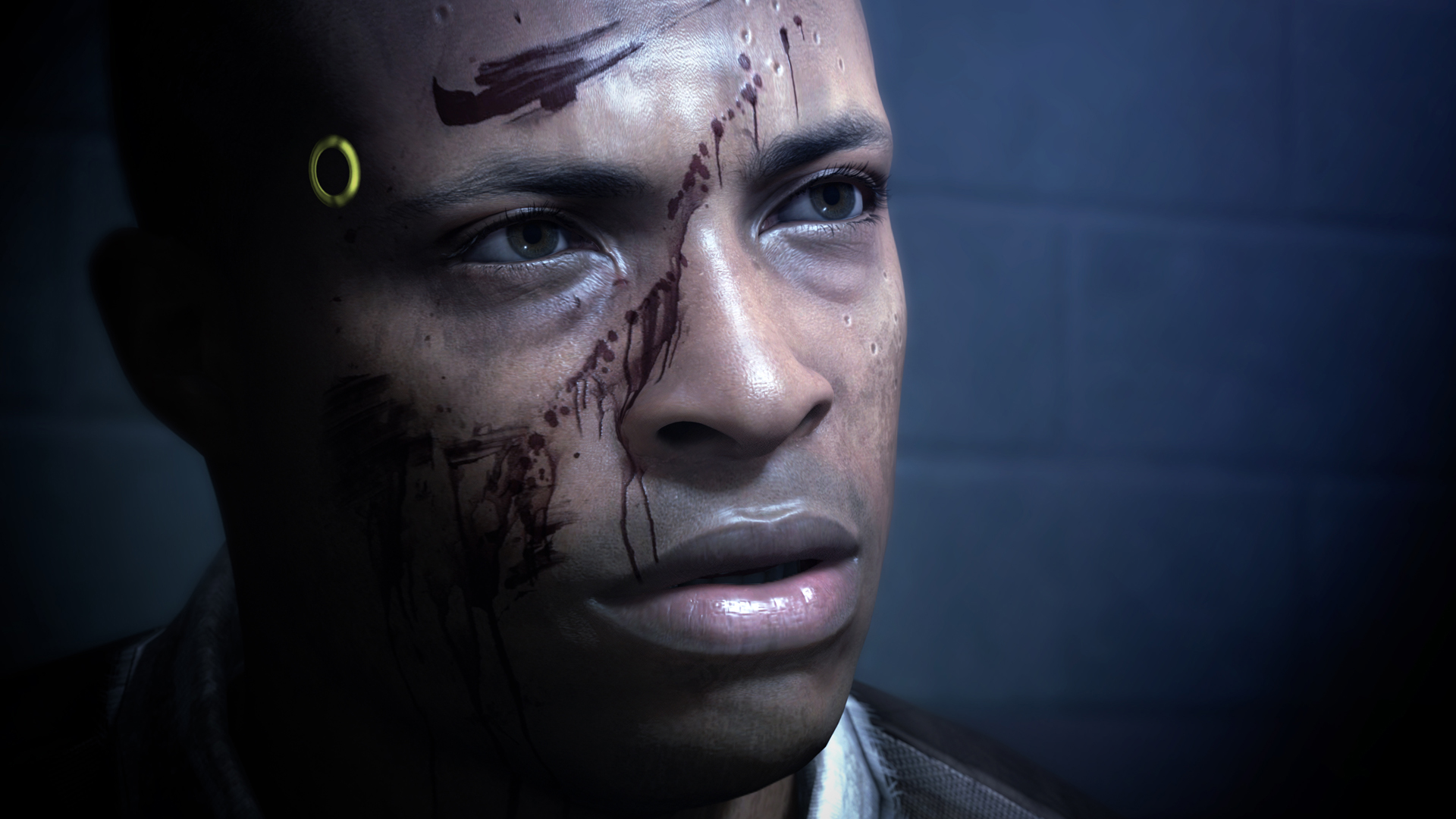
Which is your favorite Detroit character to write?
First of all there’s not a favorite character for me, because there’s a little bit of me in all of them. I like writing female characters for whatever reason, and especially with Valorie. [Valorie Curry, the actress who plays Kara.] We’ve worked together before so for me it was both easier and more difficult, somehow. Her arc is really challenging.
Kara is interesting because she has Alice with her. How do you write a child character like that which can be powerful, but not cliched or sentimental?
Writing and directing children is challenging and fascinating at the same time. We were incredibly fortunate to find this little girl called Audrey - she played the part of Alice - but writing this little girl was interesting because she was a team with Kara, an android. Alice is with this android and they go on a journey where they’ll have to discover each other and discover who they are, but they’re united by this dream of freedom that they share. It was very interesting, and very moving, to actually write.
There are some very very emotional scenes, especially when you’re a parent yourself. There were some parts that were difficult to write.
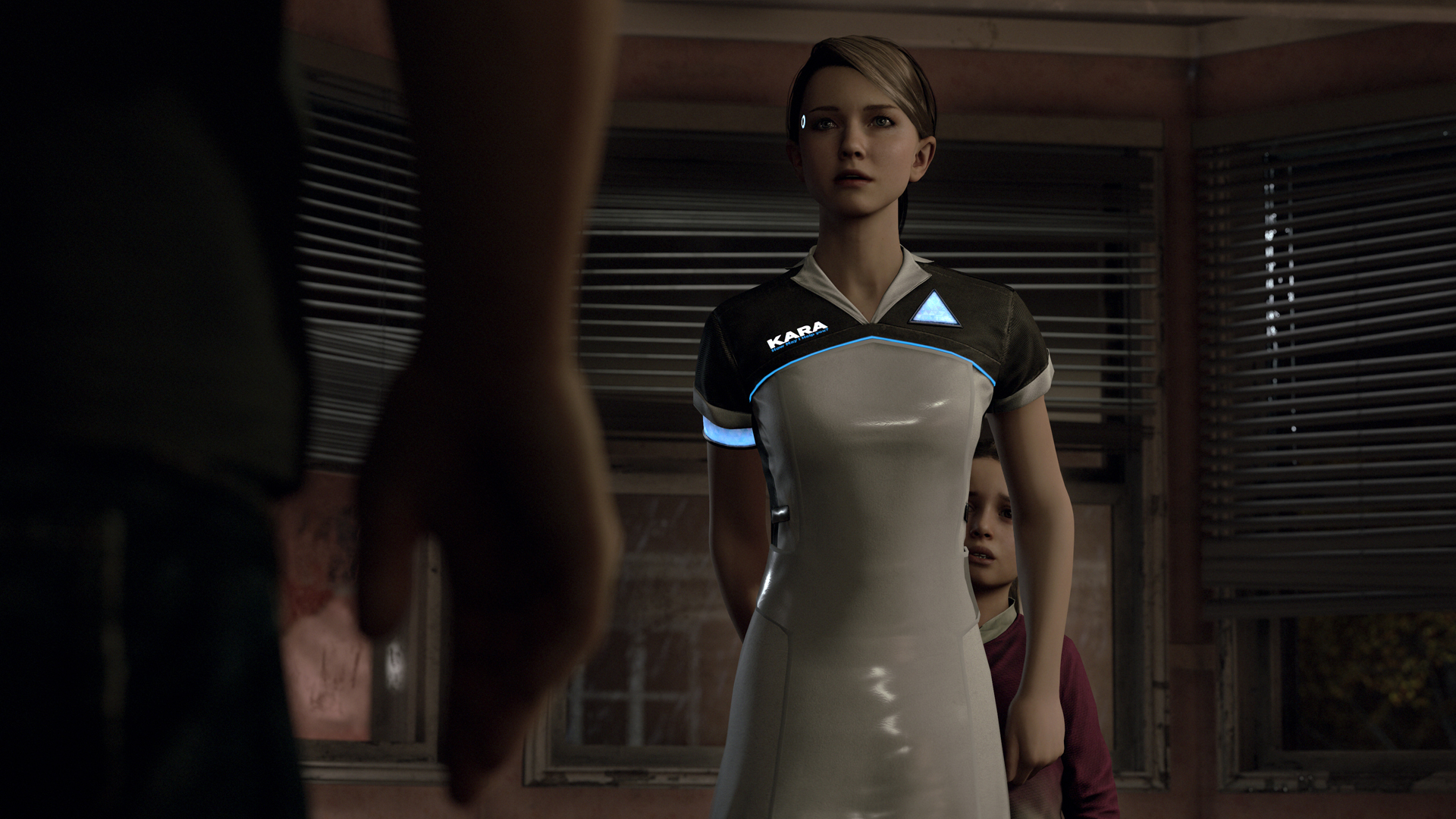
It does seem that there’s a resurgence in the idea of androids, especially those developing a consciousness. What is it about that idea that keeps fascinating us?
I don’t know about in the past, but I think right now it’s because it’s actually happening. AI is developing, there are many experiments around the globe with AI doing surprising things. I see some experiments with androids - robots that look like human beings - and it’s not totally convincing yet, but if you look at robots like the ones from Boston Dynamics, they may not look like human beings but they do things that are really surprising.
I think it’s coming, and the big question for me is whether consciousness is just a question of power and memory? Is it just CPU calculation? If that’s the case then we will create machines that will develop this sense of self awareness. If it’s not just a matter of power, then what is it? For me it’s a very interesting question, because it will answer a question about us - what are we? Are we just a very powerful brain and that’s why we feel emotions? Or do we have something else that androids will never get? It’s a big answer, and I hope we’re going to get it in the next ten to 20 years.
Sign up to the GamesRadar+ Newsletter
Weekly digests, tales from the communities you love, and more
Would you buy an android?
Who wouldn’t? That’s one of the questions in the game, people can see the danger of having this sophisticated AI, they can see the problems that go with technology. In the world of Detroit: Become Human - and this is based on real facts and studies - there is an unemployment rate of 36% because androids replaced human beings. You can see all the problems, but who would say no to technology? It’s going to make your life easier, it’s convenient. Even if you know the problems and the dangers of it, you will still go for it.
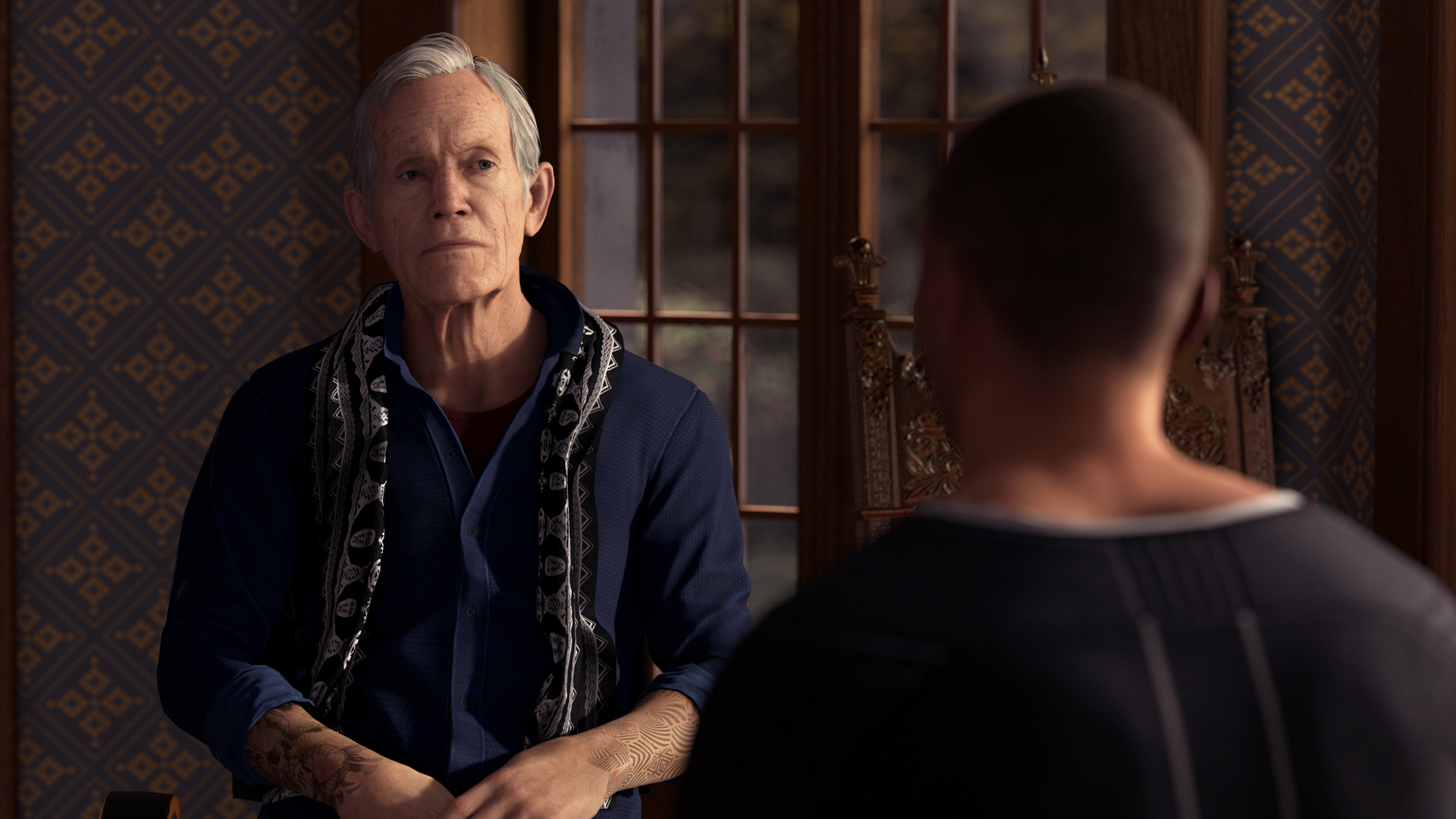
People may say no now, but then so many have AI’s like Google Assistant and Amazon’s Alexa listening to our homes…
That’s something we explore. I don’t know if you saw the news about suspicions about a cyber attack on connected objects, which is kind of scary because everyone has those objects in their home. What we played with in the game is the idea that the company called Cyberlife who create the androids, they will have ears and eyes in very household. In light of what’s happening today, it’s difficult to believe that they wouldn’t do anything with that information. Like if you’re talking about buying a new car with your wife at dinner, and the android is there serving you, it will hear it. Maybe the next time you connect to something you’ll see an advert for a new car.
It’s a tiny thing in the story but it’s the kind of things we like to play with because it resonates so much with the real world.
I appreciated little nods to the world outside the story, like magazines discussing relationships with androids, the parking bays for androids to recharge...
We really spend a lot of time thinking about the world. We try to create something that’s consistent, that’s plausible, and maybe it won’t be our world but you can reasonably believe that it’s going in that direction.
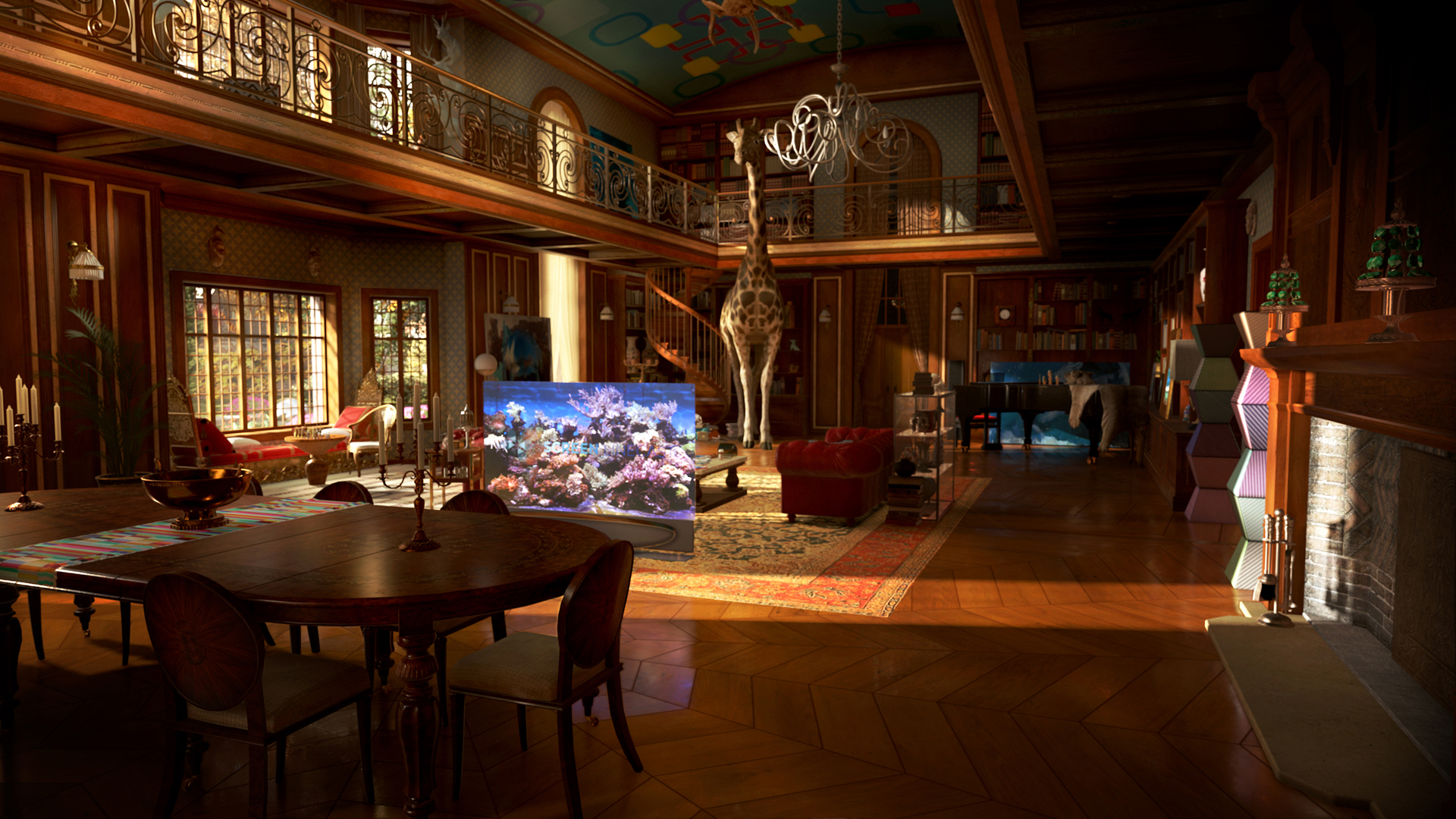
This time around you’ve given people a sort of flow chart at the end of each section, so they can get a sense of how much they might have missed by following their chosen path. Do you find people do replay a lot?
Absolutely. This is something we learned,especially from Beyond: Two Souls. There we were really frustrated about the work we put into the branching narratives that was totally invisible, because people got the feeling it was linear. So we decided that maybe that wasn’t the right approach and we needed to show a little bit what’s behind the curtain or people think there’s nothing.
In this game we put so much work into the branching narratives with so many different stories, and there are so many ways of playing things and entire scenes that you can miss. There are characters that can be there for a couple of minutes, or can play a very important role, depending on how you play. We thought it would be a pity if people played it and thought it was all linear, and with the flow chart we got incredible feedback. People love it because it shows them that they only saw a tiny part of what’s there.
It reinforces that while a lot of games promise your actions have an influence, here they do in really impactful way.
Well, it’s very frustrating to do this. As a writer and a director you’re writing a great scene that you love, but only 10% of the players will see it. Even in production, to convince the production team to do this it’s a challenge because they want to know why we’d invest time and money in this for so few people? But that’s the nature of the experience that we create and it’s important to create unique assets that not everyone will see.
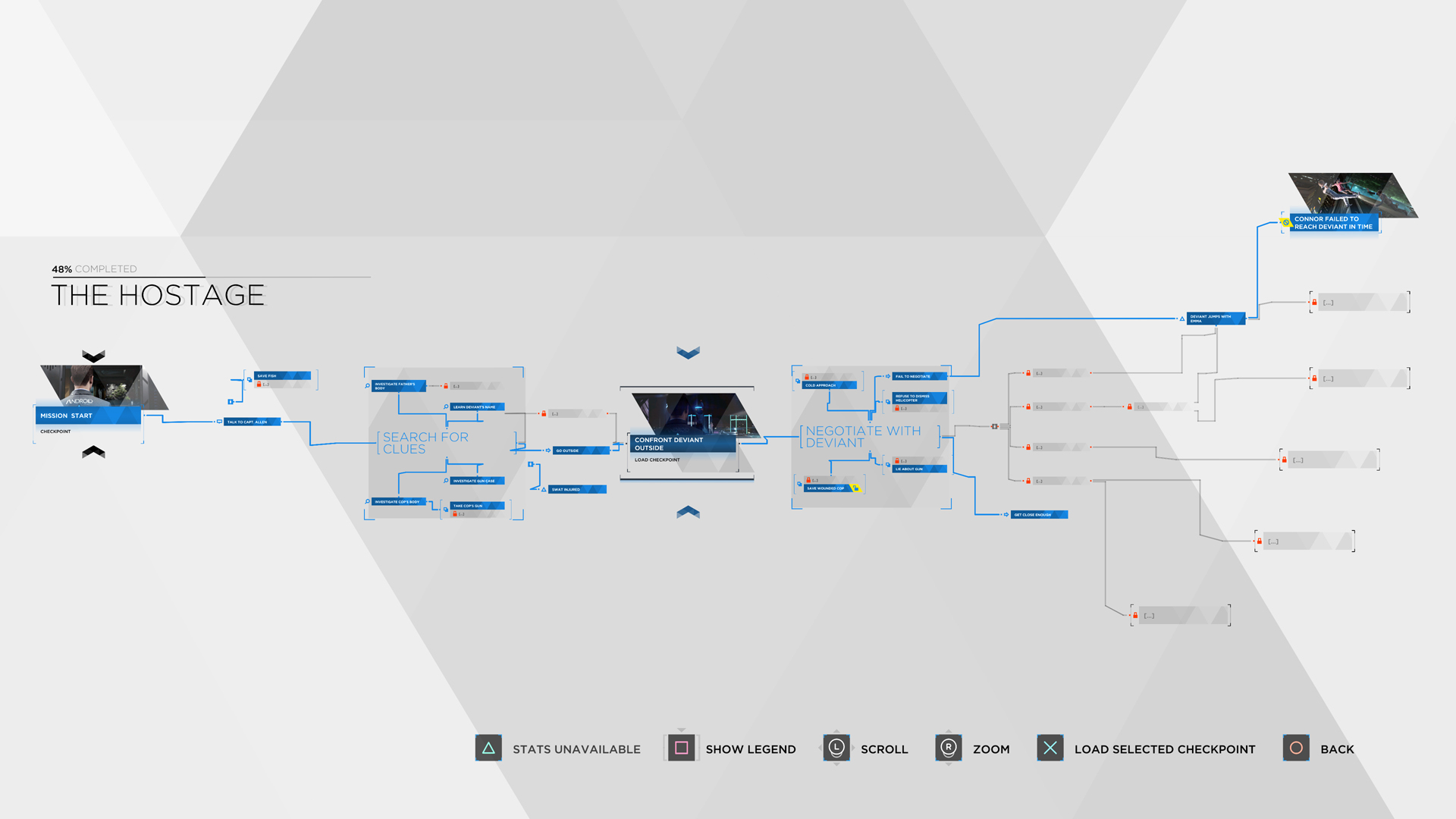
During my demo, a main character seemed to meet an unfortunate end. Now, considering this game is full of android, I don’t know if they’ll come back. Help!
I don’t want to spoil it for you. What I will say is all three characters can die and if one of them dies the game doesn’t stop.
Looking for more? Check out our list of the best PS4 games currently available.

Rachel Weber is the former US Managing Editor of GamesRadar+ and lives in Brooklyn, New York. She joined GamesRadar+ in 2017, revitalizing the news coverage and building new processes and strategies for the US team.


